My travels in South Africa span more than a decade. I’m therefore extremely well placed to highlight all that’s great and good about South African destinations including Durban from the viewpoint of visitors like you.
When it comes to location, Durban has it made. Firmly positioned on South Africa’s east coast, this port city developed around a string of long and attractive sand beaches lapped by the warm waters of the Indian Ocean.
The region around Durban has been inhabited for at least 100,000 years. It only reached the attention of Europeans in 1497, when Portuguese golden age explorer Vasco da Gama sighted it on his way to India. It then passed through multiple hands until annexed by Britain in 1844.
Today, Durban is South Africa’s third-largest city. Alongside its beaches, it contains a blend of natural and manmade sights which range from exquisite cuisine to fascinating museums. Come for the sun, sea, and sand, but stay for the culture.
To provide you with a little helping hand, here are my pick of the 15 best things to do in Durban.
1. The Golden Mile
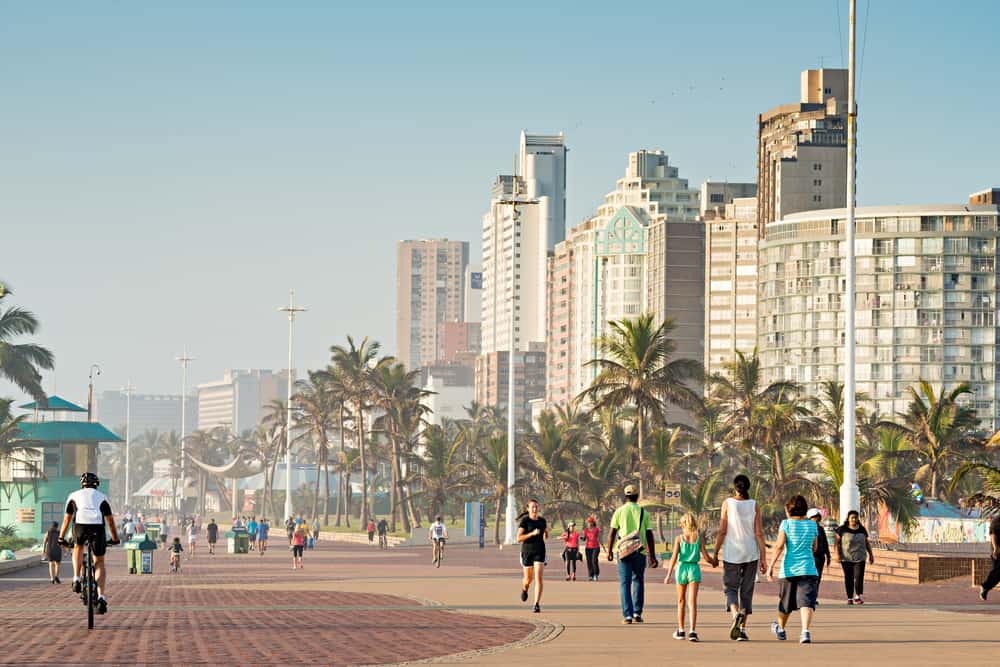 Source: Timothy Hodgkinson / shutterstock
Source: Timothy Hodgkinson / shutterstockDurban isn’t the getaway of choice for South Africans for nothing. You won’t need much convincing that the city’s Golden Mile is the best place to head. It stretches out from the Central Business District (CBD) to form several beaches backed by an attractive promenade filled with cafes and restaurants.
Like most of the Golden Mile’s beaches, South Beach is watched over by lifeguards most of the year. It’s also protected by shark nets. Its slightly calmer atmosphere makes it a good choice for families looking to enjoy the sand or water temperatures of 22°C. Neighboring North Beach is best known for its waves, which attract surfers and bodyboarders from right around the world.
2. uShaka Marine World
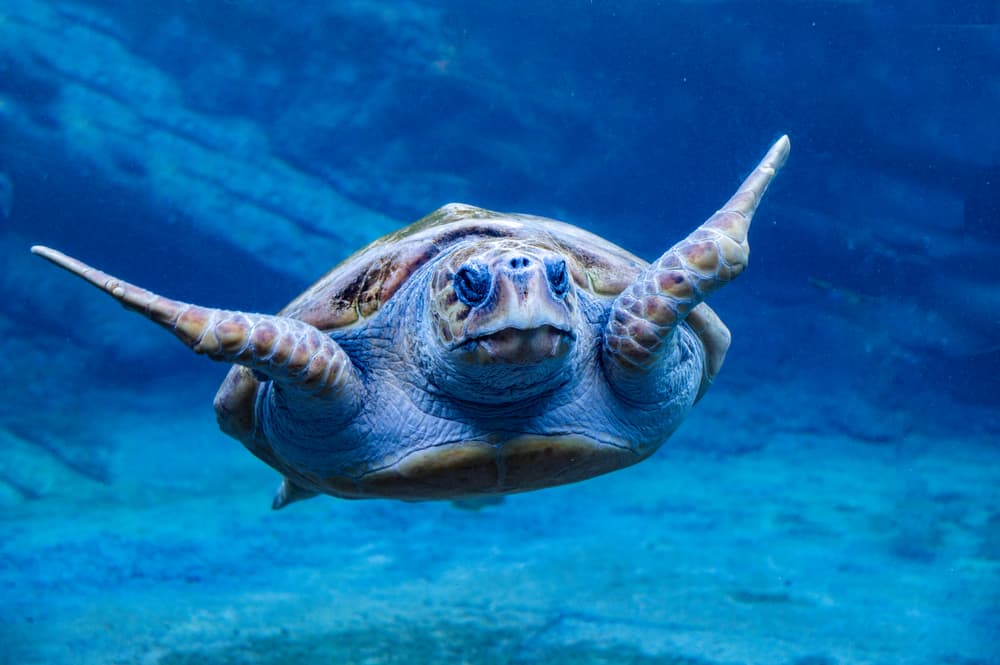 Source: Jurie Maree / shutterstock
Source: Jurie Maree / shutterstockWhen it’s time for a change from the sands of the Golden Mile, head to uShaka Marine World. Although primarily known as a water park, most agree that its slides don’t come anywhere near comparison with its aquaria, which total 4.6 million gallons and contain 10,000 distinct species of sea creature.
Putting rivals to shame, the aquaria at uShaka Marine World incorporate the largest single tank in the southern hemisphere. Its viewing windows run for 500 meters through four different ‘shipwrecks.’ Each offers insight into an alternative marine environment. Species you’re likely to encounter include sharks and manta rays, alongside turtles, seals, and even penguins.
3. Port Natal Maritime Museum
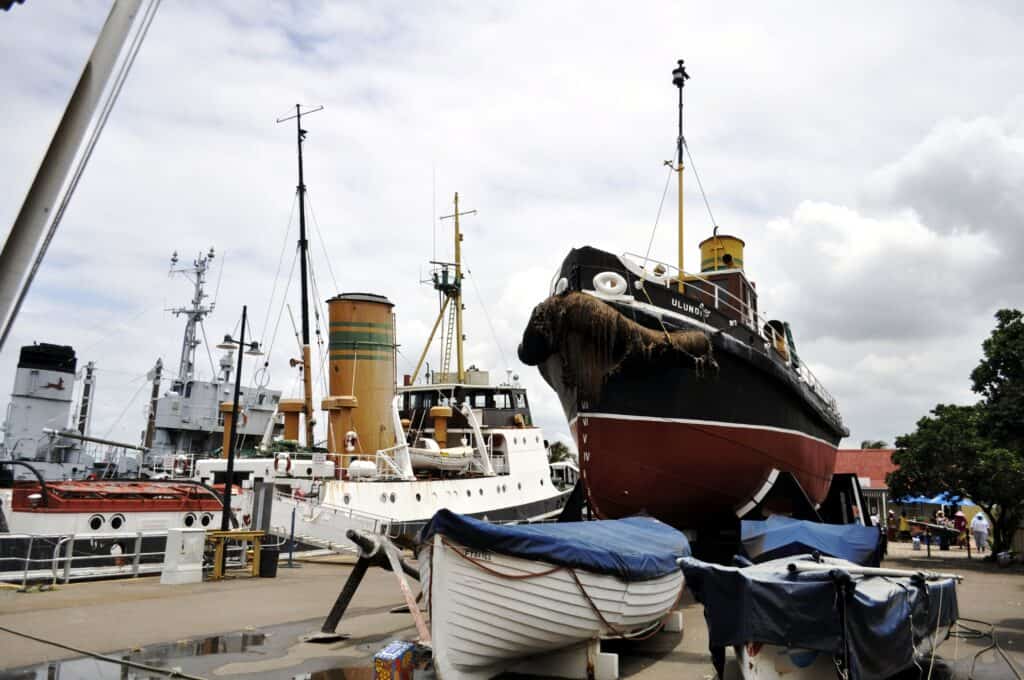 Source: Darren Glanville from Acle, Norfolk, UK / Wikimedia | CC BY-SA 2.0
Source: Darren Glanville from Acle, Norfolk, UK / Wikimedia | CC BY-SA 2.0Just across the bay from uShaka Marine World is the Port Natal Maritime Museum. Maintaining the old name for the city – which was changed in 1835 – the museum has Durban’s elegant harbor as a backdrop. Its exhibitions span hundreds if not thousands of years of seafaring in the region.
The stars of any visit have to be the boats and ships which can be boarded and explored. It’s not just little kids who’ll enjoy pretending to be the captain of the minesweeper SAS Durban or NCS Challenger while discovering the tiny rooms which together made these ships function.
4. Umgeni River Bird Park
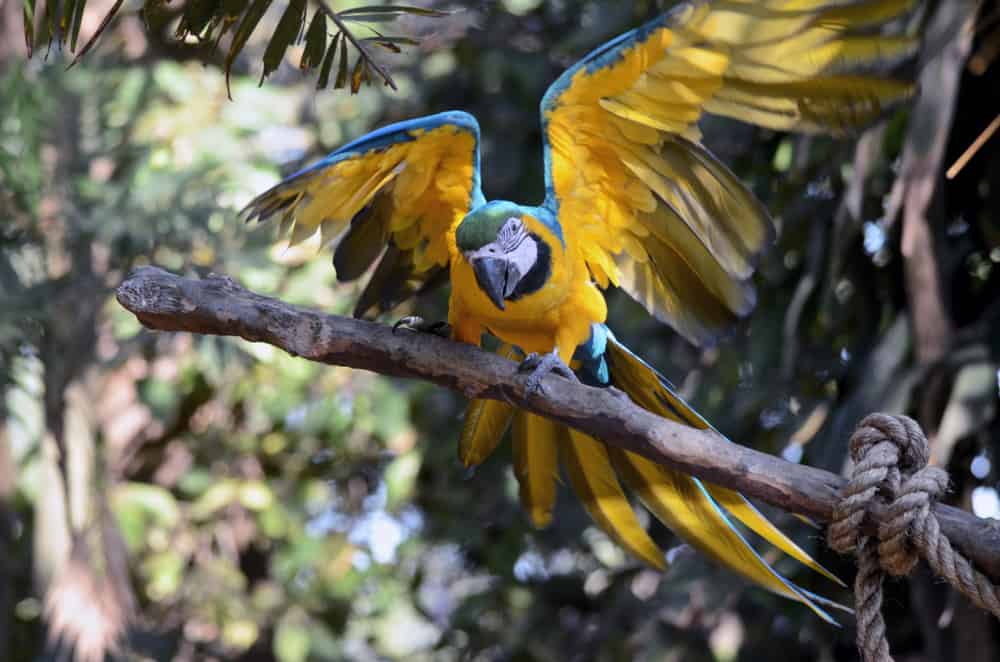 Source: Slow Walker / shutterstock
Source: Slow Walker / shutterstockOnce a water-filled quarry, Umgeni River Bird Park now has tropical flora spanning 3.5 hectares on the opposite bank of the Umgeni River to the city. It provides a home for approximately 800 birds belonging to 200 species, including the only examples of their kind in Africa.
Birds to look out for range from owls and hornbills to vultures and macaws. Many play a part in the daily shows which take place at the outdoor auditorium. Still more can be seen hatching and being raised by the park team, including increasingly rare wattled cranes.
5. The BAT Centre
Nothing to do with flight, the BAT Centre is a community arts project found on Durban’s Victoria Embankment. It consists of a clutch of individual brick buildings containing small independent art galleries, alongside a performance hall, places to grab a bite to eat, and stores selling a mix of traditional and contemporary art from KwaZulu-Natal province.
A not-for-profit center looking to celebrate the artistic heritage of the city, the BAT Centre is without doubt the best place in the city to discover the diversity of arts and crafts on offer.
Related reading: 15 Best Places to Visit in South Africa
6. Durban Botanic Gardens
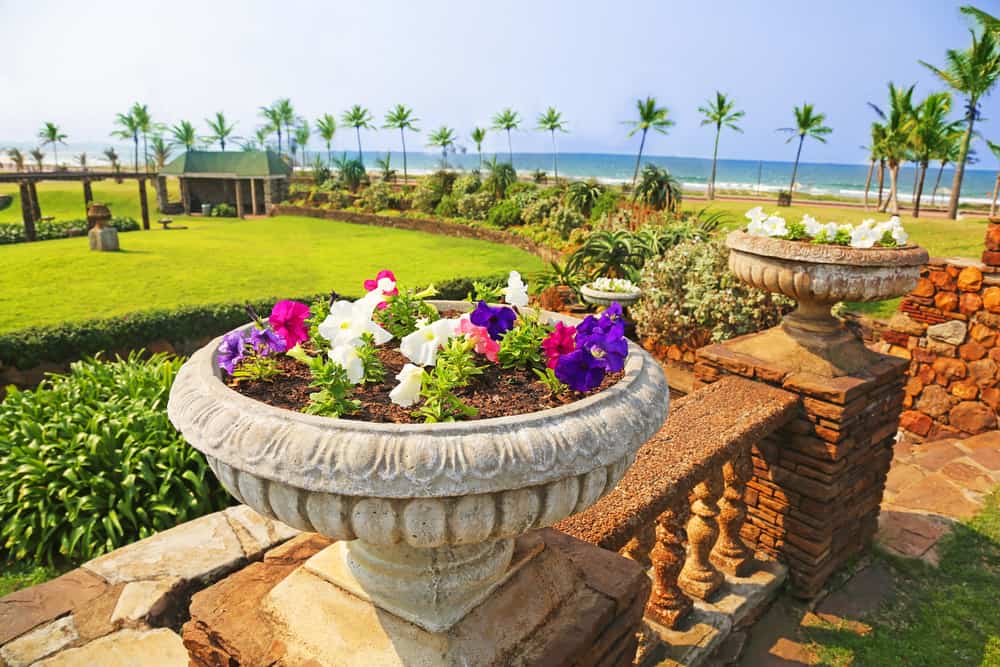 Source: Reinhold Leitner / shutterstock
Source: Reinhold Leitner / shutterstockDurban Botanic Gardens is the oldest formally laid out botanic gardens in South Africa, with a foundation date of 1849. A mix of local South African plants and exotics from around the world, it boasts specimens from a variety of floral kingdoms.
Among them are orchids, palms, and cycads (ferns). But covering 15 hectares, there’s also a sunken garden established in the English style and displaying a colorful array of flowers, a butterfly habitat garden, and a naturally-fed lake that’s the perfect spot for a picnic on any of Durban’s multitude of sunny days.
7. Mini Town
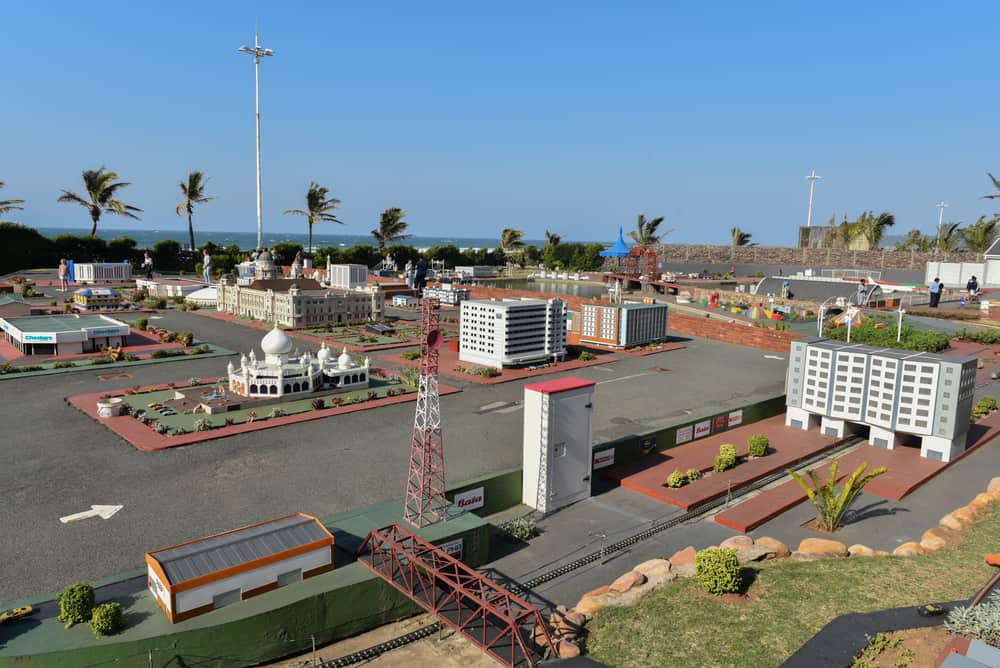 Source: BurhanAy Photography / shutterstock
Source: BurhanAy Photography / shutterstockA knee-high version of the city beyond its perimeter walls, Mini Town is a retro (turning to kitsch but in a good way) attraction close to the beachfront at Snell Parade. Recreating Durban in miniature, Mini Town contains versions of all the city’s main buildings of note.
What makes Mini Town extra special is the attention given to the functioning railway, and its harbor. Complete with its own moving tug and ship, it contains over 200,000 liters of water.
8. KwaMuhle Museum
To my mind, the KwaMuhle Museum is the most important and most interesting of all Durban’s exhibition spaces.
This museum of apartheid, and its forerunner, the ‘Durban system,’ has been sensitively situated in the building once hated by non-white South Africans – the Department of Native Affairs. It was here that the passes which had to be carried by everyone entering the city were issued.
The museum details all this with its collection of documents, photographs, videos and items belonging to ordinary South Africans. Refusing to hide away from the horrors of the apartheid system, KwaMuhle Museum plays a vital role in educating the generations born after the release and election of Nelson Mandela as South Africa’s first black president.
9. Food
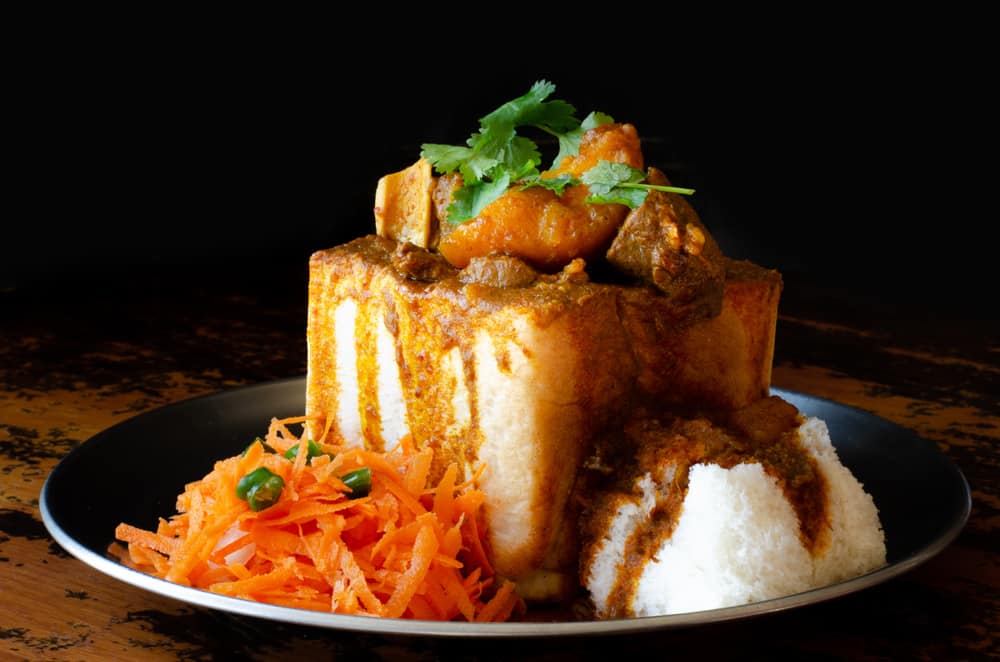 Source: Jonathan Oberholster / shutterstock
Source: Jonathan Oberholster / shutterstockOne of South Africa’s most ethnically diverse cities, Durban’s population is made up of Zulu people in addition to a significant number with British and Indian descent. Blending their cultures over decades, Durban has a culinary scene unlike any other city in South Africa. And you don’t have to spend big to enjoy it.
The city’s oceanic location means fish is always a good bet, whether it’s deep-fried in the British style or covered in flavorsome spices originating from the Indian subcontinent. For dishes specific to the city, look out for Bunny Chow – a curried mixed vegetable stew traditionally served in a hollowed-out loaf of bread.
10. Moses Mabhida Stadium
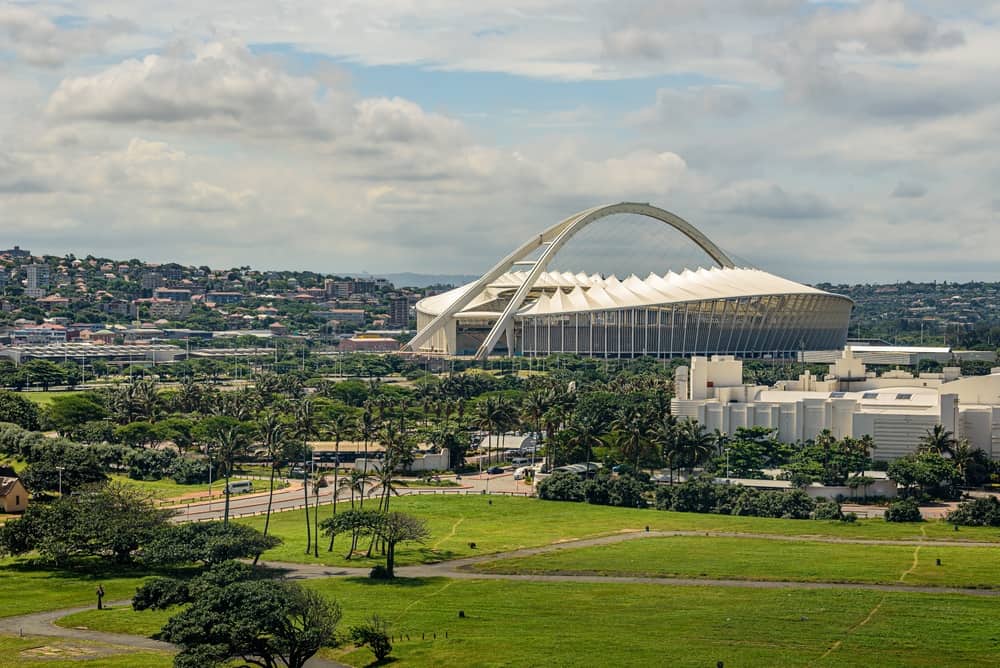 Source: Ondrej Bucek / shutterstock
Source: Ondrej Bucek / shutterstockBuilt for the 2010 FIFA soccer world cup and named after a leading anti-apartheid politician, this stadium in Durban isn’t just for sports fans. As well as hosting soccer, cricket, and rugby union matches, the stadium doubles as a playground for adventure sports lovers.
The arch which spans the 55,000 seater arena incorporates a 550 step ‘adventure walk’ leading to a viewing platform 106 meters above the ground. There’s also a funicular to reach the top for those who don’t fancy the walk. Beyond the views of Durban and the Indian Ocean, the platform provides the perfect spot to watch daredevils fling themselves from the arch on the bungee swing which flings them 220 meters across the pitch.
11. Dick King Statue
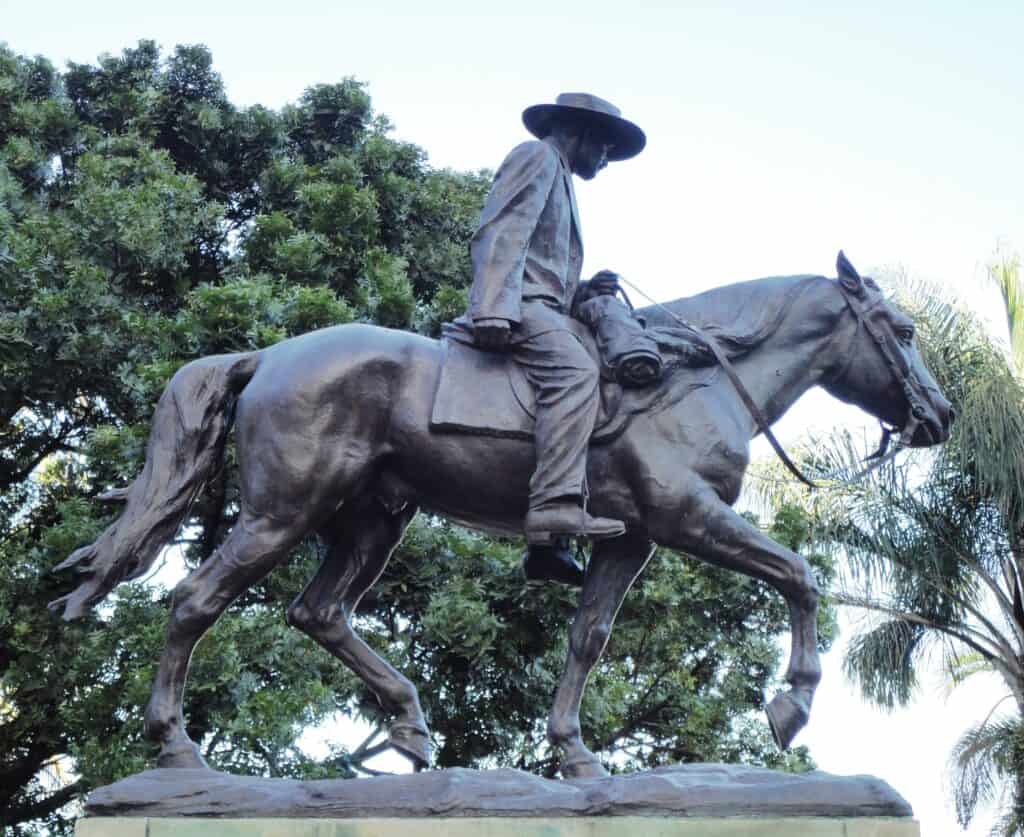 Source: JMK / Wikimedia | CC BY-SA 3.0
Source: JMK / Wikimedia | CC BY-SA 3.0The Dick King Statue is another remnant of Durban’s past located on Victoria Embankment. A bronze equestrian statue, it honors the actions of Richard Phillip King in raising the alarm over the possibility of the Boer attack on the city in the 1840s.
Riding for 10 days between Durban and Grahamstown, King covered around 125 kilometers a day, whilst so sick some days he couldn’t even ride. Reaching Grahamstown all the same, he was able to mobilize a British force which saved the city from attack and led King to become part of the history of Durban.
Also read: 15 Best Tours in South Africa
12. Durban Natural Science Museum
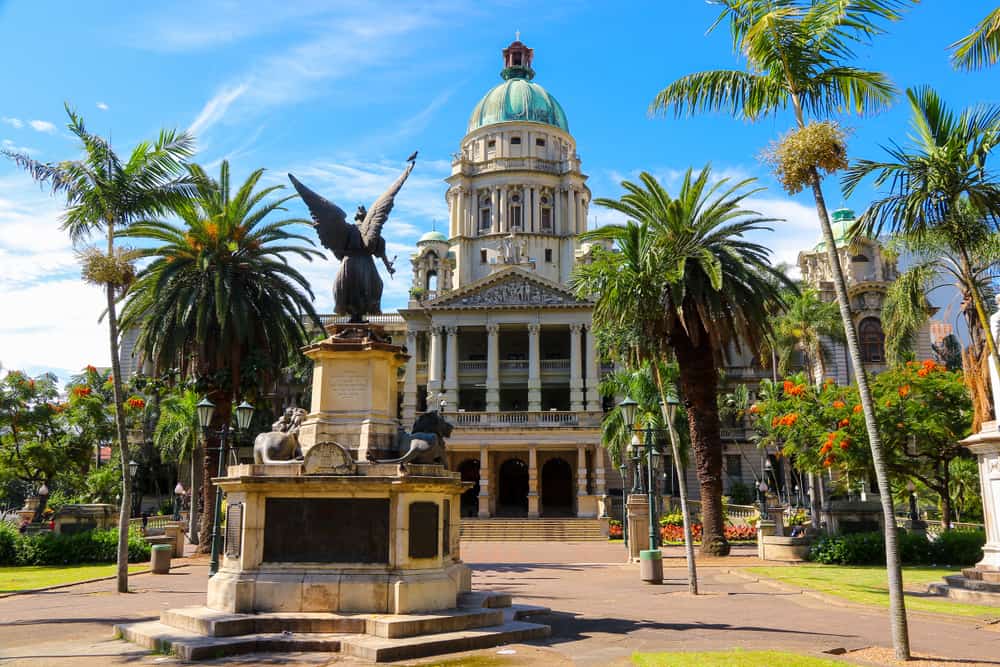 Source: Alexandre G. ROSA / shutterstock
Source: Alexandre G. ROSA / shutterstockThe grand columned exterior of the Durban Natural Science Museum should be enough to attract most visitors to its doors – part of Durban City Hall. Entering through a wide stone staircase lined with thick red carpeting, the museum’s displays are no less impressive.
Focusing on the living planet, the museum is a treasure-trove of animals stuffed in former years, from birds and mammals to insects and reptiles. Its displays extend as far as ancient Egypt, with the mummy known as Peter Amen, and one of the most complete skeletons of a dodo there is anywhere.
13. Sports
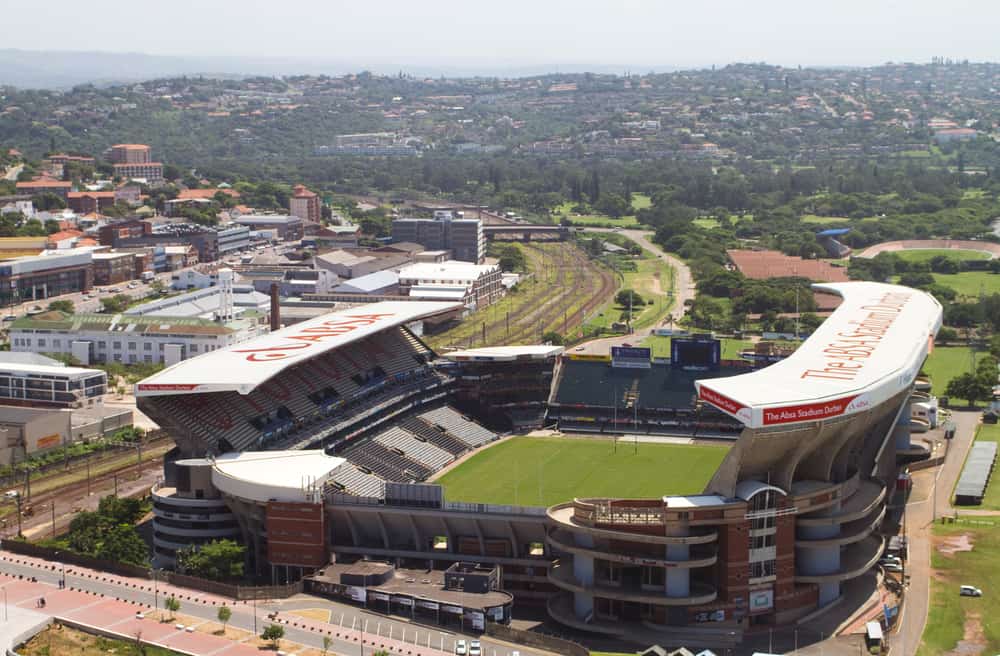 Source: michaeljung / shutterstock
Source: michaeljung / shutterstockKnow anything about South Africa and you’ll know its people love sports. The city of Durban certainly isn’t any different, making attendance at one of its major sporting events a great way of getting under the skin of the city.
Kings Park Stadium is the home ground of the Sharks rugby union team, with most games in the domestic league taking place during the country’s winter months (June to September). At other times of year, there’s also the chance to catch cricket at Kingsmead Ground, and soccer at Moses Madhiba Stadium.
14. Old Court House Museum
This museum occupies one of the oldest remaining structures in central Durban, with its ironwork veranda and cream-yellow stone windowsills making for an intriguing addition to the surrounding office blocks.
Built in the 1860s, inside visitors will find a collection totaling some 10,000 individual items. Together, they help tell the story of the area and its people through good times and bad. Further interest is provided through the fact that the building was regularly frequented by Mahatma Gandhi while he acted as a lawyer in the city.
15. Phoenix Settlement
Durban’s connections with one of the greatest men of the twentieth century don’t stop with Old Court House Museum. The Phoenix Settlement, a few miles north of the CBD, was bought by Gandhi in 1904. It was here that he began the switch from lawyer to freedom fighter.
The settlement acted as a test bed for a series of ideas, from communal living to the policy of non-violence which would see Gandhi nominated (unsuccessfully) for a Nobel Peace Prize on more than one occasion. The house where Gandhi lived during this time has been fully restored, and can be visited as part of the Inanda Heritage Trail.
